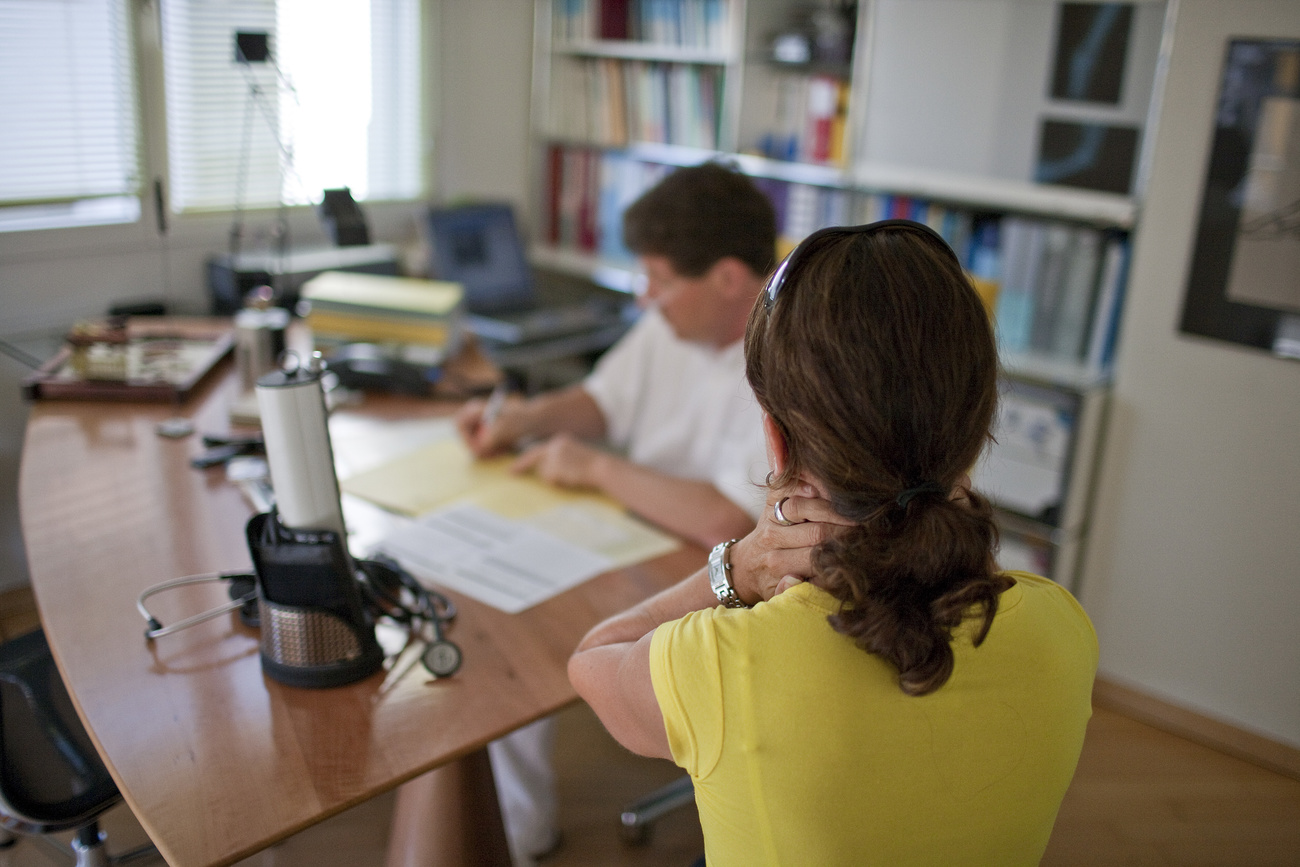
How gender disparities impact health

A recent Swiss study sheds light on the inequalities between women and men in terms of health. These are in part due to social factors. Better understanding of the influence of gender is key to improving the quality of health care, argues the study published by the Federal Statistics Office.
When it comes to health, women and men can be faced with different realities. Take just two examples: the vital prognosis of women who suffer from heart attacks is worse than for men, and women are more likely to commit suicide when suffering from depression.
Though this observation was made several decades ago, medical science has only just recently begun to explore the importance of gender in health, meaning social behaviours outside of the biological differences related to sex. The idea behind the research is that the disparities observed often stem from a combination of factors.
The case of cardiovascular disease is one of the most documented. Long considered a masculine pathology, it has principally been studied in men. However, the “typical” symptoms which result from these observations are less observed in women.
Various stereotyping on the part of the medical corps can also influence diagnoses. Women are less often advised to consult a specialist or take a stress test. “Chest pain related to a heart attack will be more easily interpreted in women as having another origin, such as anxiety”, said Carole Clair, deputy doctor at Lausanne’s University Centre of General Medicine and Public Health (Unisanté) and joint head of the Medicine and Gender unit.
In the case of depression, which is more prevalent in women, an inverse gender bias is observed to the detriment of men. All these factors could lead to detection of the disease too late, or to a faulty diagnosis, scientists say.
Longer life, lower quality of life
According to the Federal Statistics Office report, in Switzerland, women live four years longer than men on average, but their general health indicators are worse. Women are more likely to live with at least one chronic disease or long-term health problem, to complain of a general lack of energy, and to suffer from sleep issues or psychological distress.
The gap in life expectancy itself narrows year-on-year. This trend, observed in numerous countries, is thought to be largely the result of a growing similarity in the lifestyles of men and women.
Unequal in the face of pain
More women report suffering from chronic pain. They are the largest consumers of pain relief medication. This shows up in several surveys published both in Switzerland and the European Union.
The hypothesis of social factors is put forward to explain this discrepancy.
“Women have learnt to express their pain more easily than men, something which enables them to seek consultation more easily when they are in pain,” the Federal Statistics Office study notes. That said, they tend to receive lower-dose painkillers than men, and even anti-anxiety medications.
Existing gender inequalities in society could also be factored in: women suffer more from psychosocial stress and from chronic pain, due to their overall situation being less advantageous.
One determinant among others
Gender is a social determinant amongst others, like ethnicity, socio-economic situation, or even the level of education, according to Joëlle Schwarz, joint head of the Medicine and Gender Unit and who also contributed to the study. Whether a person is employed or not also appears to have an influence; men’s health in particular seems to be more affected by the absence of work. The study reveals that pain or certain physical ailments can reach the same level in inactive or unemployed men as in women.
“This trend could be explained by heightened social pressure linked to the male role of being the main breadwinner. Masculine identity is much more strongly defined than for women by professional work,” the study notes.
The paradox of the pressure to be thin
Another disparity concerns weight. In Switzerland, as in the EU, more men than women are overweight or obese. While this can be linked to genetic predispositions, weight is also linked to social behaviours like physical activity and diet.
Women in general pay more attention to their diet and overall are also more dissatisfied with their weight than men. This gap can be understood by the strong social factor which pressures women to be thin, notes Schwarz.
“On one side, it could be said that this protects them from being overweight or obese, but with the harmful effects in terms of well-being (…) and, at the extreme, problematic eating disorders, which are a lot more prevalent in women,” analysed Schwarz.
“Improve patient care”
The problem is far from being limited to the indicators in this study.
“The more interest one takes in it, the more differences are discovered everywhere,” said Clair.
Since March 2020, Clair and Schwarz have been developing an index to measure gender disparities with the goal of correcting the inequalities which are correctable, improving patient care.

In compliance with the JTI standards
More: SWI swissinfo.ch certified by the Journalism Trust Initiative































You can find an overview of ongoing debates with our journalists here . Please join us!
If you want to start a conversation about a topic raised in this article or want to report factual errors, email us at english@swissinfo.ch.